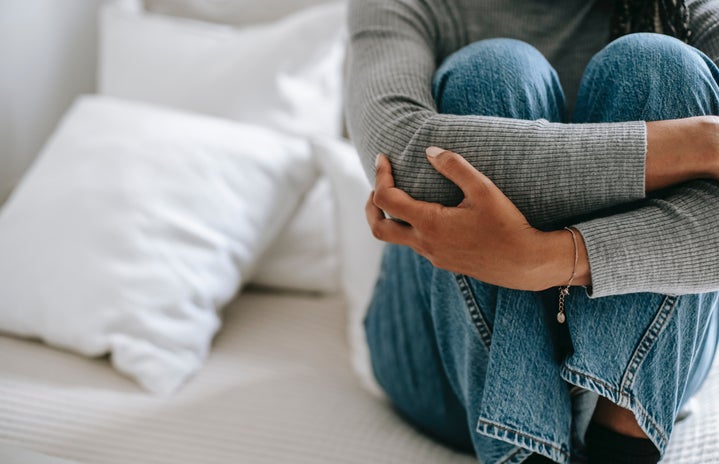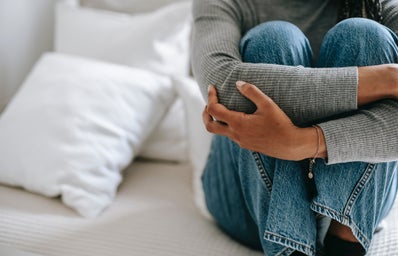We aren’t used to receiving a lot of bad news at once, and at this time they aren’t only negative but also a lot more personal. We are dealing with external disasters, from our own government and other countries, in addition to losing our loving ones. Even if we don’t realize, there is a weight on us and it’s growing, it is not easy to be mental and physically healthy in times like this.
Priscila Toscano de Oliveira Marchiolli, a clinic psychologist, helps us understand why being informed is important, regardless of the suffering when receiving the news. “Knowledge is a factor that should be seen as protective, for adaptation to the planet. Not knowing, is not the way. In the face of anguish, it seems to be the emptiness that we find our possibility of resolution. Our human power is confronted with an experience like this. We remember that we are a little controllable, but if we know the functioning of the external and internal world, it becomes easier to act”.
Priscila also explains how we can deal better at managing the news we receive: “Since we are willing to experience pain, which is part of human life, at this moment in an exacerbated way, the media always alerts us to the catastrophic situation in health, politics, culture, among others. The feeling of helplessness is always constant, but we need to understand and try to manage our time by watching the news, selecting it in the right way so that we can read a lot of information in an aggregating way. You must wonder, why am I watching this news? What trapped me here? Should I keep watching? Knowledge is a liberating tool, being well-informed helps you deal better when in crises”.
We need to learn every day how to deal with bad news, grief, and hopelessness. Juliany Machado Rodrigues, 19, a college student, told us how she is dealing with the loss of her godmother from Covid-19, the lack of hope, and as a journalist student, the constant bad news. Maybe hearing from others helps us to sympathize and stay strong together.
How has social distance interfered in your social life?
“The pandemic has changed my routine a lot. My friends and I had a habit of going out every weekend or else to join at my house, and after COVID-19, we went a long time without seeing each other. I miss being able to go out on weekends, go somewhere to sit and talk to my friends or go to a park without having to worry about crowding and stuff. So I feel very alone and distant from the people I love because I haven’t had that contact in person for many months and by message or video it’s not the same thing.”
How living with someone in the risk group affected your fear?
“At the very beginning of the pandemic, I had my father who was at risk (he had cancer and other lung infections), so at that time the care was triple here at home, we just got close to him in a mask, used alcohol gel in all the food packaging and took other care as well. By the time my father was alive, I would go to the market and come back scared to death of having caught something and passed it on to him, any desire to sneeze that I felt I already opened Google and searched for “symptoms of coronavirus” and did not want to get close to him at all, because it gave me a horrible feeling of thinking that I could contaminate him, I felt I couldn’t handle the feeling of guilt if I had contaminated him.”
How did it feel to lose someone you loved fondly?
“My godmother passed away in December 2020. She had lung cancer with metastasis, ended up taking COVID-19 in the hospital, and had a significant worsening. So it was horrible for me to lose her. We were always very close, she took care of me from when I was born, I grew up with her always present in my life, she was a person I knew I could count for everything. And since I have a very small family, I had a huge regard for her, because I have very few family members who are close to me and who are with me at all times or even to support me. She was diagnosed with cancer a couple of months after the pandemic started, so I couldn’t go to visit her for many months. I’d go, but I wouldn’t get into her house for coffee or a deeper conversation, because we couldn’t get close, considering that her clinical picture was very delicate. Every day she would send me a good morning message and say that she was homesick and we always said ‘When the pandemic is over we will be able to spend a lot of time together’, only I did not know that time would not collaborate with our plans. The pandemic limited me to spending more time with someone I loved too much. After she was diagnosed with COVID-19, she went to the ICU and no one could get in, so she passed away and I didn’t even get a chance to say goodbye or tell her how much I loved her.
How did you feel about it?
I got angry at the coronavirus because I felt that it took from me one of the people I loved most and didn’t allow me to be with her at such a difficult time. After I lost my godmother, it seems that the fear of the pandemic got even stronger, because I felt in the skin that anguish, it’s a pain I don’t want for anyone.”
Dealing with loss is never easy, now more than ever we need to learn how to cope with the flush of feelings. When concerning the process of grief and its impacts, the psychologist observed: “Grief is a process that needs to be experienced, and if it does not place itself in the proper/interesting way, it will generate remnants in the psychic system. We will see the effects as soon as we are vaccinated, returning to the usual activities, both collectively and individually. We are not having essential processes in mourning, to mourn the deceased, to receive support from friends and relatives, to have contact before death, and other actions”. She also says that’s extremely important to not lose hope in the times we live in:
“The process of believing in something has to do with psychological development since childhood so that when you grow up it can be someone who can believe. It lessens the impact, each individual has his own. It is being very impacted, it is a basic process, it is very difficult to maintain hope at times that the emotional and psychological is affected, whether during the growing process (children without emotional support tend to be individuals with less hope/beliefs) or as in the moment we live when our mental health is affected. To be in Brazil right now is to lose hope. To keep her alive, we need to seek our references, what connects you with yourself makes you want to live. Find a way to create a context of life in the midst of death, it’s not every day we’re going to get, we’re going to lose hope, but we need to go back and remember that we have a future. Do not forget art, despite the numerous attempts of the government to end it, art connects us with the transcendent, something beyond ourselves, it is essential in the process of enduring all this.”
Juliany is a true example that there can still be hope in the middle of chaos, she believes in the future and the importance of the loved ones in our journey, she shared a bit of what lights her days:
After all, that pain, do you still have hope?
“I have hope, even more now that vaccination has begun. I keep seeing the photos that people post of grandparents, uncles, and other relatives getting vaccinated and I can feel the happiness that that person is feeling in knowing that someone they love is more protected now. Furthermore, I also get a lot of support from my friends, so when it gives that feeling of loneliness and that longing, we exchange some messages and try to maintain optimism, thinking about plans for after the pandemic. I believe that, even far away, the support of those we love is always what strengthens us most in such difficult times.”
It is a hard story that will be marked forever and makes us wonder if that anger we feel is enough, sometimes we can barely stand the pain and it turns into rage. Even when it feels like we don’t have strength, as Juliany and Priscila told us, we need to keep hope alive and bring people we love and care closer, even though it happens through a screen.
To end, Priscila states that we have to keep going: “Find other meaning for that walk. We have a tyrant government with a taste for disorder and death. We’re not able to be in mourning. We will have in the future a moment of realization of everything that has happened, and it is with this moment that we must be concerned, we do not know the impacts caused by this disaster, only when we realize everything that has happened that we can have a notion.”
Still, about hope, we think it is really hard to keep it lightened, and she adds that it is an inherent characteristic in all of us: Is it inevitable to lose hope?
——————————————————————
The article above was edited by Nicoly Bastos.
Like this type of article? Check Her Campus Cásper Líbero’s home page for more.


